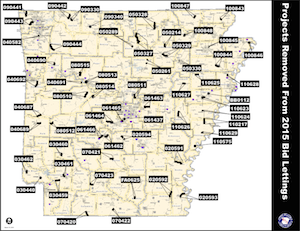Dade County Schools Superintendent Shawn Tobin equates Georgia's education funding plan with requiring a swimmer to do the same number of laps as always -- just with no arms and one leg.
"Rather than considering education an investment, it has become an expenditure burden to our legislators," Tobin said of legislative moves that seem to take more money and authority out of local hands.
He cites one move, legislation effective March 1, 2013, that replaces ad valorem taxes on car tags with a new state charge of 6.5 to 7 percent of the car's value.
"The state will now control the purse strings of this money instead of local officials," Tobin said. "We receive an average of over $400,000 a year from this revenue. My hunch is we will be lucky if we receive 80 percent next year and then, miraculously, we will receive less each of the following years.
"They dangle the carrot and then pull it away."
The Georgia Legislature has cut $1.1 billion in education funding since reductions -- called "austerity cuts" by many -- began in 2003. For Dade, the amount lost totals about $8.8 million, Tobin said.
The state now has deemed Dade the 45th wealthiest school system in the state under the equalization portion of the state's Quality Basic Education formula. That ranking comes despite the fact that at least 60 percent of students at three of the county's four schools qualify for the federal free and reduced-price lunch program, Tobin said.
"In 2004, we were considered a poor district and received $1.2 million dollars from the state for equalization [part of QBE]. Next year, we will receive barely over $27,000," he said. "I have not seen a BMW or limousine in Dade County since I moved here in February of 2011."
Officials in neighboring Walker and Catoosa counties are not as steamed as Tobin, but there are always concerns, they say.
Catoosa County Superintendent Denia Reese said the continuing austerity cuts make trouble for budget season, though she recognizes the state's position.
In Catoosa, where austerity cuts have added up to more than $40 million since 2003, officials took a number of steps in recent years to trim the budget, Reese said, and they want to avoid more changes.
"To address the shortfall, we have reduced expenses, reduced our workforce, reduced instructional days, reduced employee work days and increased class size," she said. "In this economy, I realize everyone is working harder with less. We are focused on maintaining the quality of our educational programs, even with budget challenges."
Reese said she hopes the Education Finance Study Commission appointed by Gov. Nathan Deal to study the state's funding methods translates into more money.
"Our goal is to receive adequate funding to restore a 180-day instructional calendar," she said.
Walker County social studies teacher Jim Barrett, a member of the Walker Association of Educators, called 2012's legislative session results a "mixed bag."
"I am concerned that there seems to be an effort to remove local control from local boards of education," Barrett said.
Barrett supports the idea of charter schools, but "I am very concerned about any move to fund private charter schools that really only addresses about 2 percent of our kids," he said.
On the other hand, Barrett said that "with a few small exceptions, I believe that educators across Georgia are making tremendous strides to build relationships with legislators that will allow us to educate our elected officials and our public on the impact of good public policy for schools."
Barrett predicted the economy "will continue to influence the immediacy of legislation" but said that lawmakers and educators will keep seeking "what is best for public education."


